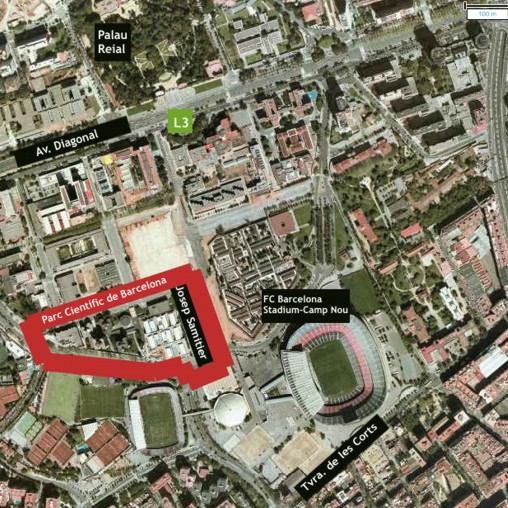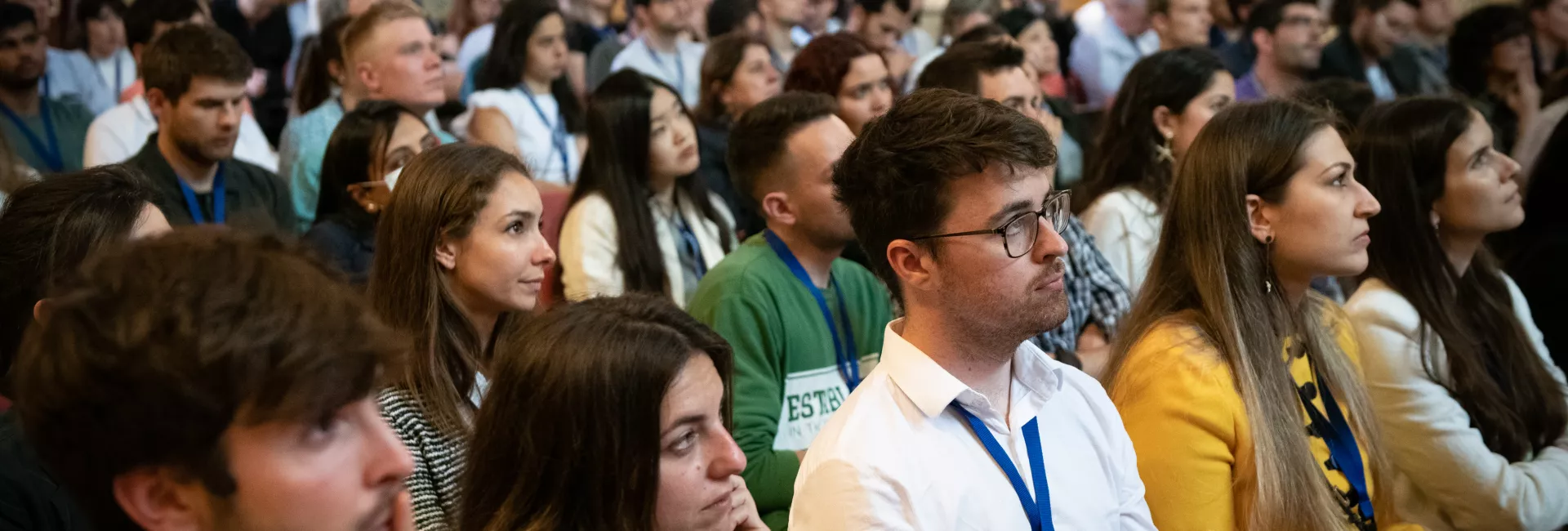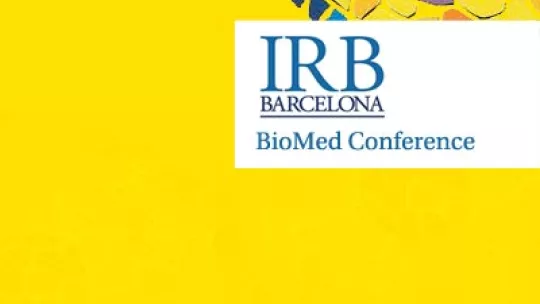BARCELONA, Spain. 26 - 28 MARCH, 2007
A BBVA Foundation and IRB Barcelona conference that will explore recent progress in the study of the functions of chromatin, and their role in disease states such as cancer.
Presentation
The Barcelona BioMed Conference on The Regulation of Chromatin Functions will be held in Barcelona, Spain, on the 26 - 28 March 2007.
The contribution of chromatin structure to the regulation of genomic functions is well established and alterations in chromatin have been documented in diverse human pathologies such as cancer, α-thalassemia, Rett syndrome, Coffin-Lowry syndrome and Rubinstein-Taybi syndrome. Changes in chromatin structure control many cellular processes and most notably, gene expression. Our knowledge of how chromatin is regulated has benefited from the identification of components that covalently and structurally modify chromatin.
These components include chromatin assembly and remodelling complexes, histone modifications (eg acetylation, methylation, phosphorylation, ubiquitination), non-histone proteins (eg HP1, PC) that recognise specific histone modifications and contribute to the establishment of distinct chromatin domains, histone variants which localise to specific chromosomal locations (eg CENP-A, H3.3, H2A.Z, macroH2A) and small non-coding RNAs that modify chromatin structure and the regulation of gene expression. In this workshop we aim to review the most recent progress in these areas and the role of chromatin in disease states such as cancer.
Barcelona BioMed conferences bring together about 20 speakers, selected from among leading international researchers, in a highly focused think-tank atmosphere. An additional 40 participants, selected on the basis of their scientific experience, are invited to join.
Registration deadline: 23 February
Organizer:
IRB Barcelona with the collaboration of the Banco Bilbao Vizcaya Argentaria Foundation (FBBVA)
Links
La relación cáncer-epigenética es cada vez más evidente (Diario Médico)
Full list BARCELONA BIOMED CONFERENCES
The regulation of chromatin functions POSTER
Download The Regulation of Chromatin Functions Conference Programme
There is no registration fee, but the number of participants is limited; participants will be selected according to scientific merit.
Those interested in participating should fill out the registration form and attach a short CV, indicating the most relevant publications, and a brief description of their current research.
Venue
IRB Barcelona headquarters and labs are located at the Barcelona Science Park (PCB, Parc Científic de Barcelona). The BARCELONA BIOMED CONFERENCE in THE REGULATION OF CHROMATIN FUNCTIONS will be held in the Auditorium of the Tower D (PCB).
ADDRESS
Institute for Research in Biomedicine
Parc Científic de Barcelona
C. Josep Samitier, 1-5
08028 Barcelona, Spain
Tel: +34 93 403 7111
Fax: +34 93 403 7114
The Barcelona Science Park is located near the entrance to Barcelona via Avinguda Diagonal and very close to the FC Barcelona Stadium - Camp Nou.

How to get to the IRB Barcelona at the Barcelona Science Park (PCB - Parc Científic de Barcelona)
Accomodation
There are several hotels close to the Barcelona Science Park. You can consult here the list of some of them, or search for more options through an accomodation searcher.
- NH Rallye. Tvra. de les Corts, 150-152. 08028 Barcelona.
It is just 15 minutes walking to the Barcelona Science Park. - Bonanova Park. C/ Capità Arenas, 51. 08034 Barcelona
It is 2 minutes walking to the Diagonal Avenue, where there is the metro, buses and the tram going in our way. - Find a hotel through the site Turisme de Barcelona
- Barcelona University Centre -BCU (Barcelona housing service for students)
- For more information about Barcelona, you can also consult the IRB Barcelona web section Living in Barcelona.
Speakers
Chairs:
- Ferran Azorín (IRB Barcelona/CSIC, Barcelona, Spain)
- Tony Kouzarides (Wellcome Trust/Cancer Center, Gurdon Institute, London, UK)
Invited speakers:
- Genevieve Almouzni, Institute Curie-Recherche (Paris, France)
- Robin Allshire, Wellcome Trust Centre for Cell Biology (Scotland, UK)
- Miguel Beato, CRG – Centre de Regulació Genómica (Barcelona, Spain)
- Peter Becker, Adolf-Butenandt-Institute (Munich, Germany)
- Shelley Berger, The Wistar Institute (Philadelphia, USA)
- Giacomo Cavalli, Institute of Human Genetics - CNRS (Montpellier, France)
- Victor Corces, The Johns Hopkins University (Baltimore, USA)
- Sharon Dent, University of Texas (Texas, USA
- Manel Esteller, CNIO (Madrid, Spain)
- Shiv Grewal, National Cancer Institute - NIH (USA)
- Steve Henikoff, Fred Hutchinson Cancer Research Centre (Seattle, USA)
- Gary Karpen, Lawrence Berkeley National Laboratory (California, USA)
- Bob Kingston, Massachusetts General Hospital (Boston, USA)
- Hans Lipps, University Witten/Herdecke (Witten, Germany)
- Rob Martienssen, Cold Spring Harbor Laboratory (New York, USA)
- Craig L. Peterson, University of Massachusetts Medical School (Worcester, USA)
- Sergio Pimpinelli, Università di Roma “La Sapienza” (Roma, Italy)
- Danny Reinberg, Howard Hughes Medical Institute, NYU School of Medicine-Smilow Research Center (New York, USA)
- Yang Shi, Harvard Medical School (Boston, USA)
- Ramin Shiekhattar, CRG - Centre de Regulació Genómica (Barcelona, Spain)

